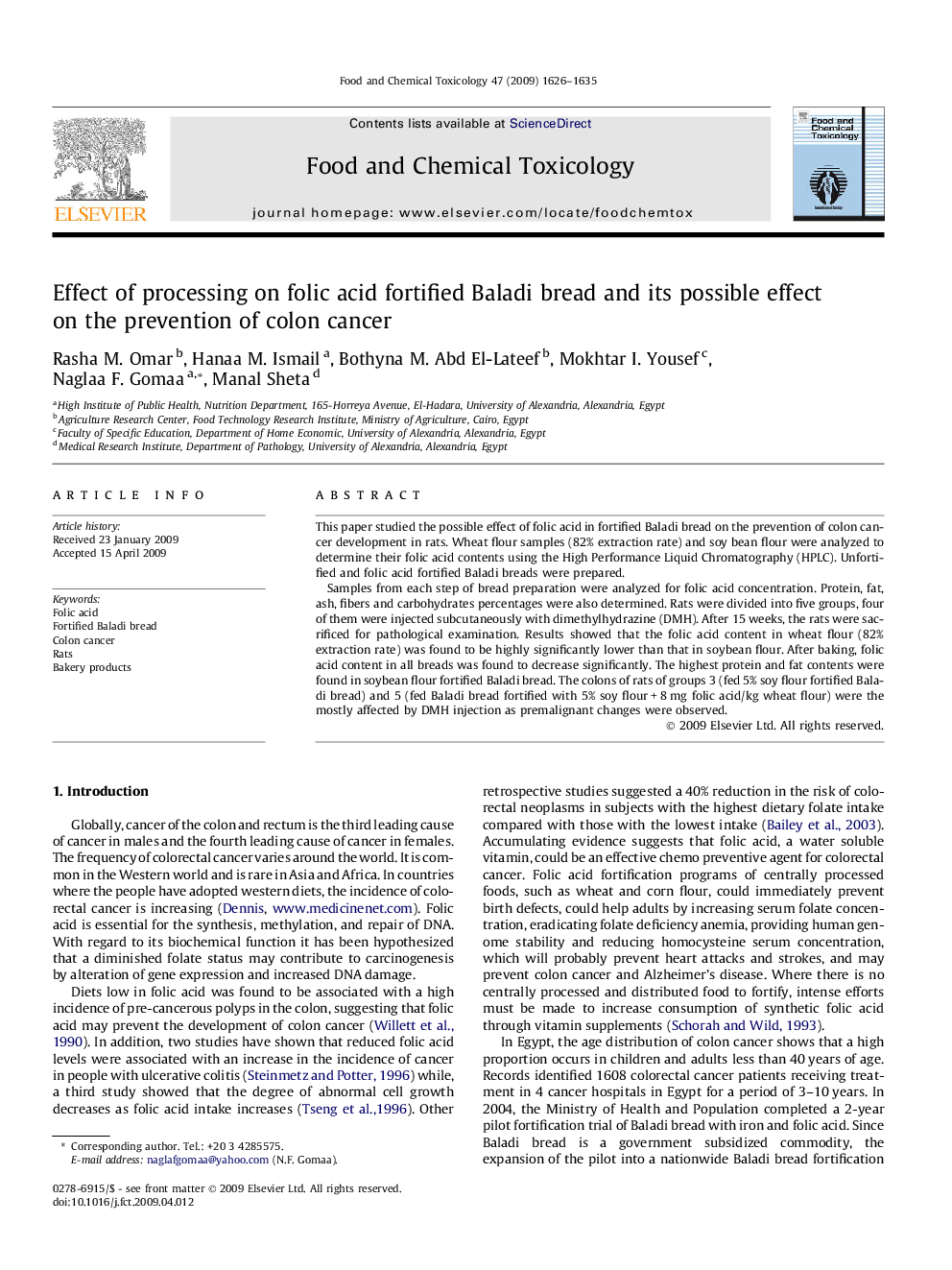| Article ID | Journal | Published Year | Pages | File Type |
|---|---|---|---|---|
| 2586276 | Food and Chemical Toxicology | 2009 | 10 Pages |
This paper studied the possible effect of folic acid in fortified Baladi bread on the prevention of colon cancer development in rats. Wheat flour samples (82% extraction rate) and soy bean flour were analyzed to determine their folic acid contents using the High Performance Liquid Chromatography (HPLC). Unfortified and folic acid fortified Baladi breads were prepared.Samples from each step of bread preparation were analyzed for folic acid concentration. Protein, fat, ash, fibers and carbohydrates percentages were also determined. Rats were divided into five groups, four of them were injected subcutaneously with dimethylhydrazine (DMH). After 15 weeks, the rats were sacrificed for pathological examination. Results showed that the folic acid content in wheat flour (82% extraction rate) was found to be highly significantly lower than that in soybean flour. After baking, folic acid content in all breads was found to decrease significantly. The highest protein and fat contents were found in soybean flour fortified Baladi bread. The colons of rats of groups 3 (fed 5% soy flour fortified Baladi bread) and 5 (fed Baladi bread fortified with 5% soy flour + 8 mg folic acid/kg wheat flour) were the mostly affected by DMH injection as premalignant changes were observed.
